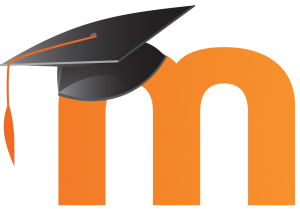About the EEISHEA project
WHAT?
Enhancing Entrepreneurship, Innovation and Sustainability in Higher Education in Africa (EEISHEA) is a project funded by Erasmus+ and carried out by a consortium of 5 universities in Africa and 5 universities in Europe. The main aim of the project is to initiate sustained educational change in the 5 African universities, by redesigning chosen curricula to become ‘best practice’ examples with regard to contents, approaches to teaching and learning and methods of delivery.
Among specific project objectives are
- Five ‘best practice’ study programmes partly or fully redesigned in collaboration with external stakeholders
- Five teams of trainers trained to train colleagues on redesign of study programmes
- Cross-regional and cross-continental networks between East and West African HEIs and between African and EU HEIs established for staff and students, making use of available ICT
WHY?
The EEISHEA project (2017-2021) is based on the DANIDA funded project Building Stronger Universities (BSU) e-Learning and Problem Based Learning (2013-2016), and the majority of partners in EEISHEA were also partners in the BSU project. In the BSU project focus was on introducing e-learning and problem based learning at course level, while in the EEISHEA project the ambition is to introduce interdisciplinary problem based learning and other student-centred learning approaches at programme level.
HOW?
The two main components of the project are Training and Curriculum Development.
Academic staff from the European universities will provide the initial training, organized into 4 Training Teams: Student-Centred Learning (SCL), E-Learning (E-L), Entrepreneurship & Innovation (E&I) and Sustainability (SUS). The overall organisation of training is based on a modified version of The Jigsaw Classroom, an active and collaborative learning approach that has a documented positive impact on commitment and motivation of participants.
The training is followed by curriculum redesign at the African universities, involving a range of public and private organisations, including employers and with the assistance from European partners. Each African university has chosen a highly relevant study programme that will be partly or fully redesigned to integrate entrepreneurship, innovation and sustainability as part of the programme content. The redesigned curriculum will apply student-centred learning, including a range of active and collaborative approaches to teaching and learning, such as, problem based learning, challenge driven learning, team based learning etc. and the methods of delivery will involve a range of relevant and available e-learning approaches and tools. Thus, graduates will be equipped with entrepreneurial and innovative skills for employability and self-employment and awareness of sustainability issues relevant to society. It is hoped that graduates will contribute to promotion of sustainable economic growth and employment through creation of new businesses and jobs for and by young Africans. New enterprises and opportunities will contribute to a more vibrant economy and help stem migration from Africa.
An important part of the implementation is to secure accreditation through close collaboration between university management and Tanzania Commission for Universities in Tanzania and National Accreditation Board in Ghana.
QUALITY ASSURANCE
Quality assurance will include formative and summative internal and external monitoring and evaluation, applying a range of evaluation methods and techniques. Internal evaluation of training will mainly be based on reflection and evaluation reports from the training teams involved, trainees as well as trainers, while internal evaluation of curriculum development and implementation of the new curricula will be based mainly on student surveys as well as surveys among external stakeholders.
External evaluation will be carried out by the Quality Control (QC) team consisting of two independent external experts, one from Tanzania, one from UK. This QC team will interact with all persons involved in the project, whether students, staff or other stakeholders. Specifically, they will make site visits to each African university in order to collect data from all stakeholders involved in the curriculum development process. They will also throughout the project period give feedback and recommendations on internal reflection and evaluation reports, as well as on draft curricula. Lessons learned and recommendations from the QC team will be adhered to in ongoing project planning.

MOODLE
If you want to see the material conducted in this project, you can get access to the EEISHEAs moodle page.
Write an email to bente@plan.aau.dk to get username and passcode.